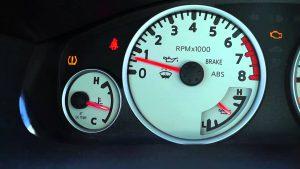While practically everyone may own a car, not everyone may know their car engine. However, you need to know if your car engine temperature is at the right level. It will help you know if the engine, the heart of your car, is doing well. And, it is important whether it is a manual drive or an automatic.
Nevertheless, not all car temperature gauges are designed to simply indicate the car temperatures as HOT, COLD, or SAFE. There are digital gauges as well, which may give away only relative high or low.
Contents
How to Read Car Engine Temperature
It is common knowledge that an overheated engine can be a dangerous thing. But, what you may not know is how to gauge and what to do once you know it is overheating. This calls not only for the knowledge of how to read your gauge and recognize overheating car symptoms, but also how to react. Take note of these maintenance tips.

Analogue gauges
As you may have noticed most gauges indicate through a numberless panel. They simply have C and H, or blue and red, and a point between them which indicates normal temperature. The interpretation is simple. Here is what you must interpret:
Normal – All is good
Cold – All is still good. The old cars need a little warming up in the winter. Modern cars are fine that way. No need to warm up. The computer supplies the fuel even if the engine is cold to get to get it up and running.
Hot – Yes, it’s worrisome and you need to react.
Digital gauges
These simply display a value in Fahrenheit. If you are a gizmo person, you will check what the temperatures on a digital gauge mean. But, here is a simple tip:
Below 240oF – All is good
Above 240oF – The engine is overheating. The gauge will set off a blink or an alarm, and you need to get it under control.
Overheating is one of the most common engine problems that you must not ignore.
Watch more:
How Hot Does A Car Engine Get?
First of all, we need to understand that the engine operates well when it works at high frequency but the temperature is always maintained in accordance with the manufacturer’s regulations. The normal car engine temperature is in the range of 90-105 degrees Celsius (about 195 to 220 degrees Fahrenheit) (for gasoline engines, the engine temperature is regulated to be about 80 degrees Celsius, for diesel engines, it is around 90 degrees). The power units of modern cars operate at a temperature of 100°-105°. In the engine cylinder, when the mixture is burned, the combustion chamber heats up to 2500 degrees, and the task of the coolant is to maintain an optimal temperature within the normal range. Any error with this component will cause the temperature to be higher than normal, causing an overheating problem.
Read more:
>> The Noises of Your Car Engine are Trying to Tell You Something
>> It May Be Time to Replace Your Car’s Oil Pump. Find Out
What to Avoid when the Car Engine Temperature Goes Up

- Don’t keep driving, but don’t brake hard either. If the engine is overheating, simply slow down, pull the car aside safely, and turn the engine off.
- Don’t try to start the engine again after a few minutes thinking that it has cooled down. Most time engines heat up because of the lack of coolant. So, you need to fix the problem first.
- Don’t rush to open the bonnet right away. The odds are that you will end up burning your hands. Open it cautiously, once a few minutes have passed.
- Never take the radiator cap or the water system cap off right away. It increases the risk of blowing up since it is under high pressure.
- If the radiator requires coolant, don’t rush off to refill it with antifreeze. Make sure that there are no leaks or bursts in the coolant system. The leak or burst could actually be the cause of the overheating car symptoms.
- Start the engine after a few minutes of refilling the coolant. If it heats up again, do not try to be an expert. In case you cannot diagnose what the problem is or if the engine still heats up you must call professional help.
Remember, overheating car engine temperature can be a real problem. Diagnose it and treat it in time.




It helps